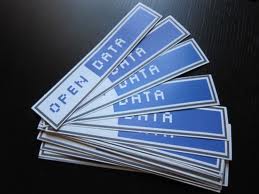The development of equipment.data is funded by EPSRC in response to the need to improve visibility and utilisation of UK HE research equipment.
equipment.data has been established to provide a ‘shop window’ for all UK HE research equipment, supporting the need for greater accessibility and efficiency in the sector. So, if your research requires a mass spectrometer, rather than request funding for a new one, you can search the equipment.data database for a university near to you that has one and discuss options for its use. This has the ultimate aim of fostering further research collaboration.
The database harvests published equipment datasets from institutions that have agreed to share their equipment data (under an open publishing license). It currently displays over 2500 items, both facilities and equipment, from 10 institutions, which includes BU.
A very easy to follow guide has been produced on how to use the equipment.data.ac.uk website. This provides simple steps on both accessing and contributing to the equipment and facilities database.
OK, how do I contribute?
If you want to add equipment to the database, please contact your DDRE in the first instance. They will advise on what format needs to be used so that you can provide the information in order for it to be uploaded centrally.
Commitment to the future
By adopting a linked open data approach to data management and publishing, it is creating an infrastructure enabling greater opportunities for added value data aggregations in the future.
Developments are being shared with RCUK’s Gateway to Research team and the DCC with a view to exploring mutual benefits of data publishing, aggregation and standardising of publishing profiles in data management planning. Harmonised standards in open data will present many wider benefits moving forward, including the ability to very easily link information on large equipment items or facilities to their publications and grant details – think measuring impact for REF! It enables the creation of data rich informative web pages or informative apps without the need to create whole new datasets.
Following the signing of the Open Data Charter on 18 June 2013 by G8 leaders, members identified 14 high-value areas, including education, from which they will release data. With this commitment to open data there is a greater need to consider open publication of datasets and how best to publish in a way that will enable value to be achieved from it.












 SPROUT: From Sustainable Research to Sustainable Research Lives
SPROUT: From Sustainable Research to Sustainable Research Lives BRIAN upgrade and new look
BRIAN upgrade and new look Seeing the fruits of your labour in Bangladesh
Seeing the fruits of your labour in Bangladesh Exploring Embodied Research: Body Map Storytelling Workshop & Research Seminar
Exploring Embodied Research: Body Map Storytelling Workshop & Research Seminar Marking a Milestone: The Swash Channel Wreck Book Launch
Marking a Milestone: The Swash Channel Wreck Book Launch ECR Funding Open Call: Research Culture & Community Grant – Application Deadline Friday 12 December
ECR Funding Open Call: Research Culture & Community Grant – Application Deadline Friday 12 December MSCA Postdoctoral Fellowships 2025 Call
MSCA Postdoctoral Fellowships 2025 Call ERC Advanced Grant 2025 Webinar
ERC Advanced Grant 2025 Webinar Update on UKRO services
Update on UKRO services European research project exploring use of ‘virtual twins’ to better manage metabolic associated fatty liver disease
European research project exploring use of ‘virtual twins’ to better manage metabolic associated fatty liver disease